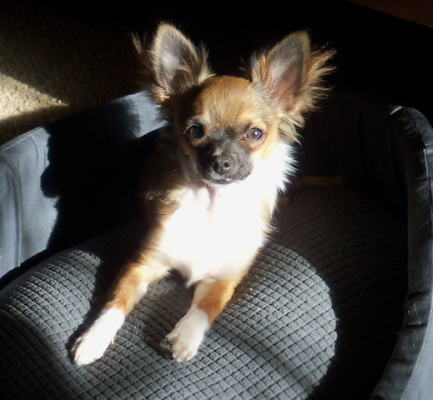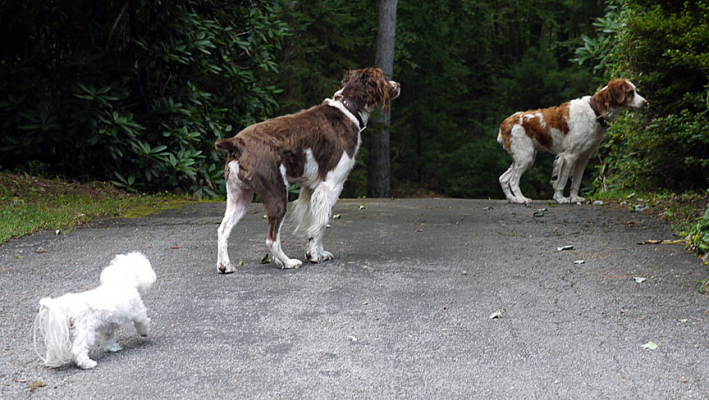We always have had a labs or a Border Collies. I love my Borders Collies the 2 I have now are great, when the kids were little they would herd them away from the pool until I said it was OK and they can open both gates in about a minute if the gates are not locked properly. DW has always wanted a small dog so Valentines day 2009 I got her a chihuahua dachshund mix we call a chiwienie. I have to admit I have fallen in love with her and don't think I will get more big dogs when the Collies are gone. They are getting up there in years and the small dog is one of the family, easier to clean up after and even though she is high energy she behaves better in public and around crowds. The Collies think every crowd needs to be rounded up and herded back to me. They are always trying to get off the leash so they can go to work and they have both figured out how to get out of a collar.
As far as the RV goes with 5 of us and usually a few kids friends a small dog is the only way we could even think about taking a dog along.
Wayne
As far as the RV goes with 5 of us and usually a few kids friends a small dog is the only way we could even think about taking a dog along.
Wayne


